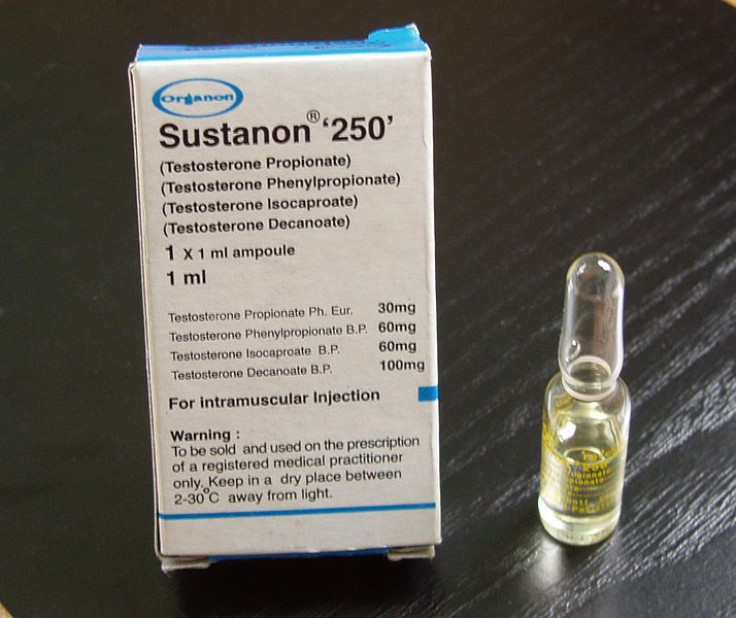Low Testosterone May Be Linked To Heart Problems In Men; Hormone Replacement Therapy Does Not Help

It is estimated that below-normal levels of testosterone affect roughly 39 percent of men over the age of 45. Now, a recent study finds that men with low testosterone levels may have slight risk of developing or even dying from heart disease. Yet, the study also found that hormone therapy, despite being helpful in relieving some symptoms, does not improve a man’s cardiovascular health.
What Are The Symptoms of Low Testosterone?
Testosterone is a male sex hormone that helps maintain sex drive, sperm production, and bone health. Low levels of testosterone may sometimes be referred to as androgen deficiency syndrome or hypogonadism, which is a failure of the testes to produce adequate amounts of androgen (male hormones, including testosterone and androstenedione). When low levels of testosterone in particular occur, both sexual and non-sexual symptoms may be the result. Sexual signs may include a decreased desire for sex, weaker and fewer erections, and generally poor erectile function. Nonsexual symptoms may include increased body fat, reduced muscle mass, increased fatigue, decreased energy, and depression.
Low testosterone levels become increasingly prevalent as a man ages. Past studies indicate that the incidence of low testosterone steadily rises from approximately 20 percent among men over 60 years old to 30 percent among men over 70 to fully half of all men over 80. That said, low testosterone levels may occur in a man of any age for any number of reasons, including testicular trauma and glandular disorder.
Harry Fisch, M.D., a columnist for The Dr. Oz Show website, estimates that only five percent of the millions of men with hypogonadism are currently being treated, while at the same time testosterone replacement therapies flood the market and prescription testosterone product sales have increased by more than 500 percent since 1993. “Testosterone replacement therapy is only appropriate and safe for men who have below-normal levels and who don’t have any medical conditions that could be made worse by testosterone, such as an enlarged prostate or evidence of prostate cancer,” Fisch wrote.
Do the benefits of replacement therapy include a boost to heart health?
Links Between Testosterone and Cardiovascular Disease
Researchers from Ghent University in Belgium examined various studies published between 1970 and 2013 to find results that might link cardiovascular disease to testosterone.
"When we reviewed the existing research into testosterone and cardiovascular disease, a growing body of evidence suggested a modest connection between the two,” Johannes Ruige, of Ghent University Hospital in Belgium and the study's lead author, stated in a press release. Little evidence linked low testosterone to artherosclerosis, the hardening and narrowing of arteries that can cause heart attacks and strokes. The researchers also found no association between low testosterone and heart attacks.
“A specific pathogenesis did not come forward, but perhaps less frequently investigated events may play a role, such as thrombosis where a blood clot develops in the circulatory system or arrhythmia, where there is a problem with the heart beat or rate," Ruige stated in a press release.
One surprising finding: men with low testosterone who were treated with replacement therapy gained no benefits in terms of their hearts; therapy failed to improve their cardiovascular health. This result may add fuel to the fire in the ongoing debate about hormone therapy, a practice some doctors claim is too widespread. The Endocrine Society has adopted a moderate stance; it recommends treating only men with consistent low levels of testosterone and consistent symptoms.
"Gaps still remain in our understanding of low testosterone and cardiovascular disease," Ruige stated in a press release. "Based on current findings, though, we cannot rule out that low testosterone and heart disease both result from poor overall health."
Sources: Ruige J, Ouwens DM, Kaufman JM. Beneficial and Adverse Effects of Testosterone on the Cardiovascular System in Men. Journal of Clinical Endocrinology & Metabolism. 2013.
Pantalone KM, Faiman C. Male hypogonadism: More than just a low testosterone. Cleveland Clinic Journal of Medicine. 2012.



























